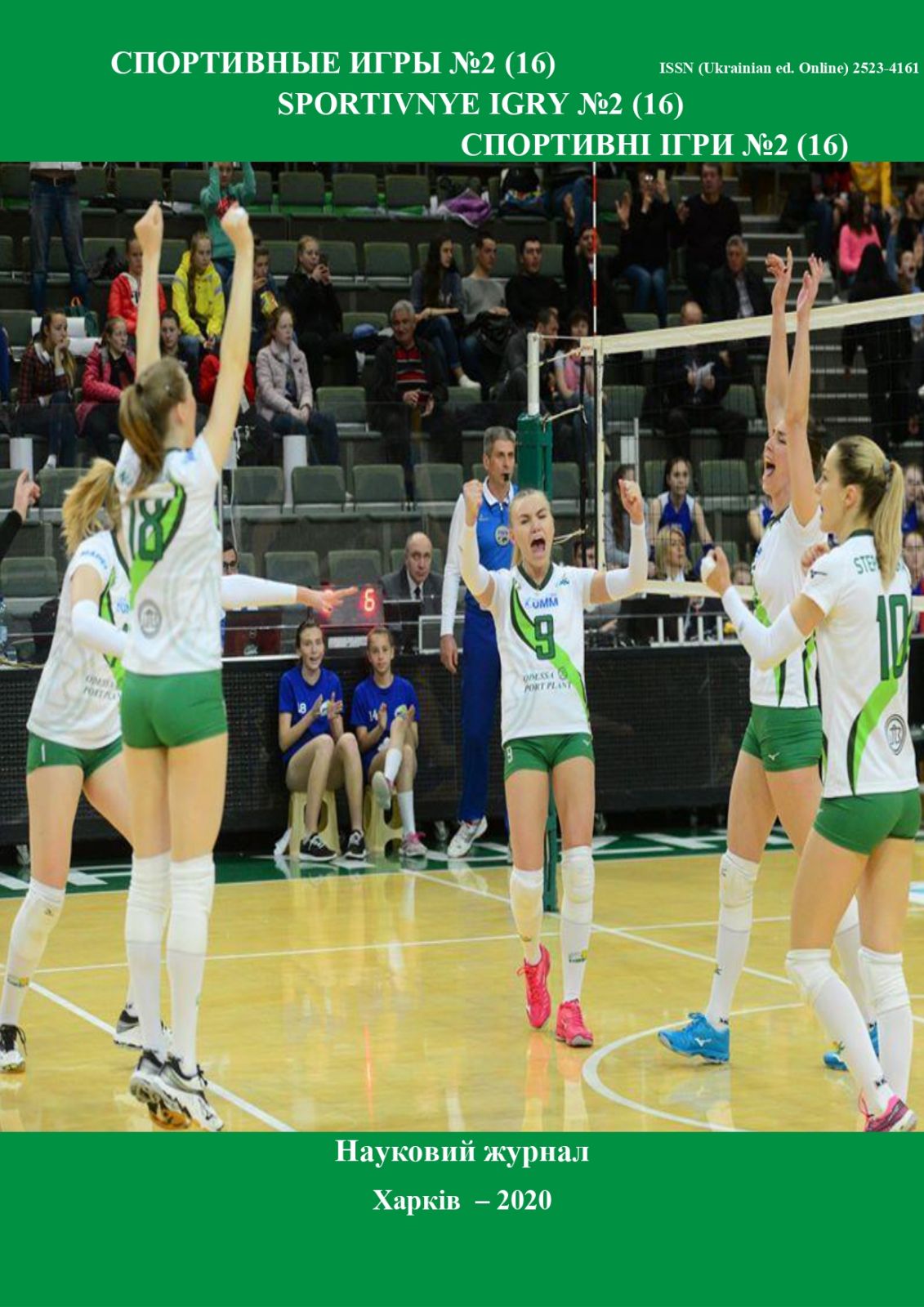To determine the leadership style volleyball teams in the first year of study at the Ukrainian state University of railway transport
DOI:
https://doi.org/10.15391/si.2020-2.08Keywords:
leadership, leader, result, autocratic, democratic, liberal, interactionAbstract
Materials and methods: pedagogical
experiment took part students of management, construction and Economics. Ukrainian state
University of railway transport. The study involved three student groups from different faculties at
the sports specialization "Volleyball" with the 1st course. Research methods: analysis of scientific
and methodical literature, questionnaire survey, pedagogical observation. Results: High physical
activity and emotional stress during competition, for first-year students requires a more thorough
psychological analysis of the official leadership of a coach. Often technically well trained athletes
lose at the expense of moral, psychological fatigue. To solve this problem helps to identify the
informal leader in the team and the right coach at the moment. Constant contact a coach with the
unofficial leader of the team coach facilitates the management of the volleyball players and
contributes to the realization of his plans. Official guide of the volleyball team executes the coach.
Leadership styles can be different, for example, an autocratic style, where the coach likes the
"metal" discipline. Relationship coach - team is based on the suppression of independent decisions,
not listen to the opinion of an informal leader of the team. Democratic leadership style is more
interaction between the staff and the coach. The conditions for the manifestation of independent
decisions during the game. Liberal leadership style is a slight interference in the activities of the
team. To identify the informal leader in the team test was conducted and a recommendation to the
coaches to collaborate together with the team captain informal leader. Conclusions: the Survey
was sent n the definition of leadership style the team has established: in the first group of 10 players think the leadership style of their Manager as autocratic, 2 - democratic; in the second group of 11 players I think the management style of the team, their coach is a democratic, 1 -
autocratic; the third group was 9 players identified liberal leadership style of their Manager, 2
democratic, 1 - autocratic.
References
Андреева, Г. М. (2001). Социальная психология. М.: Аспект Пресс.
Бєляєв, А. В., & Буликіна, Л. В. (2011). Волейбол. Теорія і методика тренування. М. : Дивизион.
Губа, В., Булыкина, Л., & Пустошило, П. (2019). Волейбол. Основы подготовки, тренировки, судейства. М. : Спорт.
Железняк, Ю. Д., Шипулин, Г. Я., & Сердюков, О. Э. (2004). Тенденции развития классического волейбола на современном этапе. Теория и практика физической культуры, (4), 30-33.
Ильинич, В. И. (2000). Физическая культура студента: учебник. М.: Гардарики.
Ільїн, Е. П. (1983). Психофізіологія фізичного виховання. М. : Освіта.
Козина, Ж. Л., Барыбина, Л. Н., Мищенко, Д. И., Цикунов, А. А., & Козин, А. В. (2011). Программа «Психодиагностика» как средство определения психофизиологических особенностей и функционального состояния в физическом воспитании студентов. Физическое воспитание студентов, 3, 56-59.
Мерлин, B. C. (1986). Очерк интегрального исследования индивидуальности. М.: Педагогика.
Параносич, В., & Лазаревич, Л. (1977). Психодинамика спортивной группы. М.: ФиС.
Пуни, А. Ц., & Сурков, Е. Н. (1979). Психология физического воспитания и спорта.М.: Физкультура и спорт..
Смолюк, І. О. (1999). Педагогічні технології: дослідження соціально-особистісного аспекту. Луцьк : Вежа.
Шиян, Б.М. (2001). Підготовка вчителя фізичної культури третього тисячоліття. Концепція розвитку галузі фізичного виховання і спорту в України, 2, 371-374.













